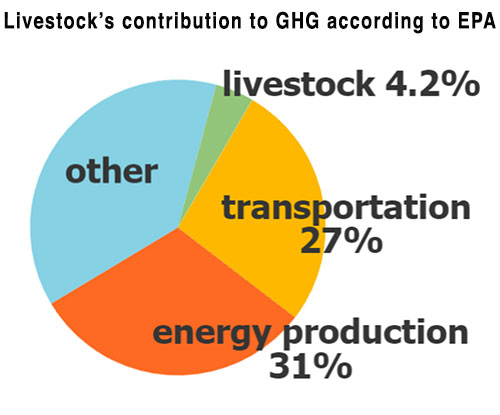 Kicked off in the early 2000s, "Meatless Monday" was meant to be an opportunity for Americans to join in a cause, one that supposedly helped stop climate change.
Kicked off in the early 2000s, "Meatless Monday" was meant to be an opportunity for Americans to join in a cause, one that supposedly helped stop climate change. The group that promotes this weekly abstinence from meat claims skipping meat one day a week can save significant energy resources. How big are these savings?
If every American participated, there would only be a 0.6 percent reduction per year, according to calculations from UC-Davis Animal Science Professor Frank Mitloehner.
He recently chaired a United Nations Food and Agriculture Organization committee and penned a white paper defining livestock's contribution to climate change.
"Comparing the 4.2 percent GHG (greenhouse gas) contribution from livestock to the 27 percent from the transportation sector, or the 31 percent from the energy sector in the U.S., brings all contributions to GHG into perspective," Mitloehner said. "One certainly cannot neglect emissions from the livestock sector, but to compare them to the main emission sources would put us on a wrong path to solutions."

Compare the 0.6 percent reduction in GHG from Meatless Mondays to the potential reduction of every American replacing incandescent lightbulbs with Energy Star bulbs. That move would drop GHG emissions 1.2 percent, twice that of Meatless Mondays.
The numbers back dairy's sustainability story as well. Over the past 60 years, dairy has recorded a third smaller carbon footprint while reducing the national herd by 59 percent and boosting production 79 percent.
The Meatless Monday movement suggests environmental change begins with "YOU," and maybe it still does, but not by skipping meat on Monday.
(c) Hoard's Dairyman Intel 2016
May 2, 2016








